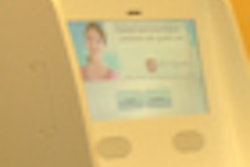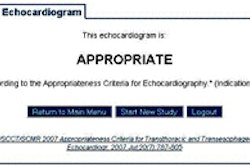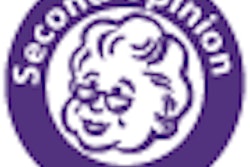The U.S. Centers for Medicare and Medicaid Services (CMS) has announced a $10 million project to evaluate the efficacy of decision-support systems for ordering diagnostic imaging studies.
With its Medicare Imaging Demonstration initiative, CMS will seek to determine if the use of decision-support systems can promote the ordering of diagnostic imaging procedures only when they are clinically appropriate, thereby reducing unnecessary radiation exposure to patients, reducing imaging expenditures, and improving the quality of patient care.
CMS is providing up to $10 million for the 24-month project, which is scheduled to begin January 1, 2011. It was authorized by the Medicare Improvements for Patients and Providers Act of 2008.
The demonstration will focus on the appropriate use of CT, MRI, and nuclear medicine (including PET) exams, as well as other advanced diagnostic imaging services potentially to be defined by CMS. Based on high expenditures and utilization in the Medicare fee-for-service population, 11 diagnostic imaging procedures have initially been selected:
- CT abdomen, brain, lumbar spine, pelvis, sinus, and thorax exams
- MRI lumbar spine, brain, knee, and shoulder exams
- SPECT myocardial perfusion imaging exams
Radiography, fluoroscopy, and ultrasound studies will not be included.
The project will assess the effects that decision-support systems used by physician practices have on the appropriateness and utilization of medical imaging services ordered for Medicare fee-for-service patients. The decision-support systems used will provide immediate automatic feedback to the ordering physician based on current medical specialty guidelines about the appropriateness of the diagnostic imaging procedures to resolve the clinical questions about the patient.
CMS is seeking participation by 2,500 to 3,500 physicians from 500 to 650 physician practices that vary in size, specialty mix, type (both academic and private practice), and geographic location. All physicians must have the ability to submit data electronically.
"Conveners" will be used to recruit physician practices, install decision-support systems that incorporate medical specialty society guidelines for the selected procedures, and keep the systems updated to reflect any guideline changes. They also will be responsible for collecting and transmitting data and distributing payments to physician practices for reporting data.
CMS said that it is particularly interested in proposals from potential conveners that involve the diverse mix and variety of physician groups it is seeking. Conveners may include medical specialty societies, IT vendors, physician groups, integrated healthcare delivery systems, independent practice associations, health plans, and radiology benefits managers. Collaboration among these entities is allowed, and CMS is not precluding unspecified entities from also submitting proposals.
The deadline for proposal submission is September 21, 2010, and details may be accessed by clicking here.
As a spokesperson of the Imaging e-Ordering Coalition, an all-volunteer alliance of healthcare providers, technology companies, and diagnostic imaging organizations promoting health IT-enabled decision support, Liz Quam told AuntMinnie.com that the members were very pleased about the level of funding and scope of the project.
Quam, the executive director of the CDI Quality Institute in Minneapolis, and participants have made many trips to Washington, DC, to discuss the importance of automating the expertise of radiology experts to provide immediate feedback to physicians ordering exams, rather than relying on the layperson staff of radiology benefits management companies.
"Decision-support systems offer immediate feedback and continuous support," she said. "Physicians can learn from their ordering mistakes and benefit from expert recommendations for the procedures that should be ordered in a consistent, unbiased manner. We are very excited about this demonstration project."
By Cynthia E. Keen
AuntMinnie.com staff writer
July 23, 2010
Related Reading
One-quarter of outpatient CT and MRI exams are inappropriate, March 1, 2010
CDC report: MRI, CT, PET use spikes in physician offices, ER, February 18, 2010
ACR lobbies against RBMs, utilization rate changes, June 26, 2009
ACR, others form Imaging e-Ordering Coalition, June 16, 2009
Study shows CT use has increased, diagnostic yield has not, March 3, 2009
Copyright © 2010 AuntMinnie.com



















